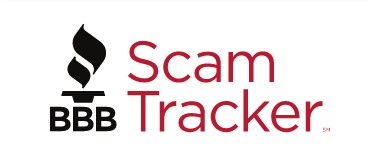![]()

Young adults aged 18-24 have been the hardest hit by scams and have reported a higher median dollar loss than any other age group for the first time since the BBB Institute for Marketplace Trust (BBB Institute), the International Association of Better Business Bureaus’ educational foundation, began publishing research.
Targeting our youth: How scams are impacting ages 18-24 highlights scam types, tactics, and trends based on data submitted to BBB Scam Tracker between January 1, 2022, and June 24, 2023. The 18-24 demographic made up 6.1% of the overall reports during the time period, the smallest percentage of all age groups, but had a much higher median dollar loss ($200).
Riskiest scams
Employment scams continue to be the riskiest scams for ages 18-24, making up almost 30% of scams reported by this age group to BBB Scam Tracker. This scam type had the highest median dollar loss of all scam types reported by this age group ($1,819).
Riskiest scams for 18-24-year-olds:
1. Employment
2. Online purchase
3. Cryptocurrency
4. Rental
5. Investment
6. Fake check/money order
7. Phishing
8. Romance
9. Advance fee loan
10. Credit repair/debt relief
About 19% of employment scams from this age group mentioned schemes involving inspecting or reshipping packages. Online purchase scams made up 29.1 percent of all reports submitted by 18-24-year-olds, with 81.4% reporting a monetary loss.
Contact method
Ages 18-24 were more likely to report being targeted by text message or internet messaging than other age groups. The contact methods with the highest likelihood of a monetary loss (susceptibility) included website and social media. The contact methods with the highest reported median dollar loss were phone call, text message, and in person.
This group reported a higher percentage of scams targeting them on Instagram and X (Twitter) than other age groups.
Payment method
Ages 18-24 reported a higher percentage of scams via online payment system and bank account debit. The payment methods for this age group with the highest median dollar loss were wire transfer ($2,150), check ($1,500), and cryptocurrency ($1,200).
Tips to Avoid
- If something sounds too good to be true, it probably is. Whether it’s a great job or a really low price, take time to do your research.
- If somebody pressures you to act quickly, it’s a red flag. Extract yourself from the situation and make sure it isn’t a scam.
- Never click on links in unsolicited emails or texts. Scammers pretend to be well-known organizations you trust. Go directly to your account or their official website to ensure the inquiry is real.
For more information
To report a scam, go to BBB Scam Tracker. Read the full report here.
ABOUT BBB: BBB is a nonprofit, business-supported organization that sets and upholds high standards for fair and honest business behavior. BBB services to consumers are free. BBB provides objective advice, BBB Business Profiles on more than 5.3 million companies, 11,000 charity reviews, dispute resolution services, alerts and educational information on topics affecting marketplace trust. Visit BBB.org for more information.
